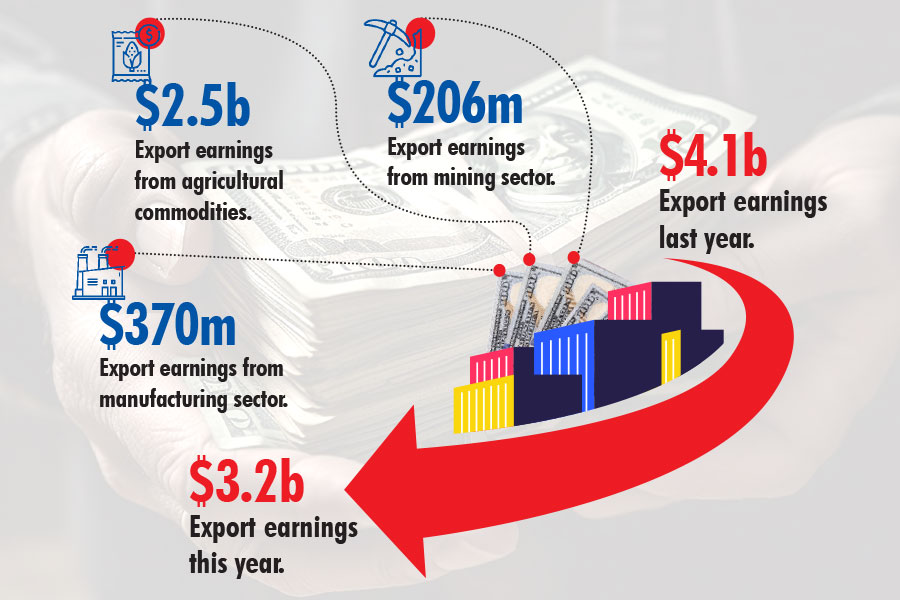
Editorial | Apr 11,2020
Mar 30 , 2019
By Etenat Awol
It is not uncommon to hear of misconceptions people tend to have about one of the most critical issues in our contemporary society, feminism. It is just as frustrating, if not more, to hear why many find the subject matter hard to swallow.
Indeed, in a developing country where most basic economic and political necessities are not met, how it is possible to develop without the active engagement of half of the population is not clear.
It is as well atypical that the concept of equal opportunities for both genders became a surprise in a patriarchal country. It is only natural that all socio-political systems will at some point or another be faced with counter movements, which in this case was the rise of women’s movements meant to resist male-dominated political and economic institutions.
Why are people unwilling to support such changes if it is a concept that must be easy to grasp?
This is a matter that nonetheless deserves scrutiny. Primarily, most people believe that the concept of feminism is not necessary for a society where women were and are symbolical representations of their country. This shows the value of women in that society, they would claim. This leads to deflections of the matter: that inequality in fact only exists between classes.
While the woman was working the whole day in the household, the husband was out there tilling the land, thus where is the justice in only calling for the liberation of the former?
There is also the view that those that call for the betterment of women’s lives and gender equality do not care about the issue as much as they say. Rather, they care about the funds they gain from foreign activists. The proponents of the issue become the point of argument more than the issue at hand itself, which is a favourite tactic used by politicians. It is a strategy of attacking opponents personally, instead of addressing the issue head-on.
The other critical point raised, and particularly popular these days, is the matter of contextualisation. It is often said that these concepts are imported from the West without a good understanding of the socio-cultural circumstances.
Emotions are a product of ideas, actions and their consequences, thus defensive reactions of feminism are a consequence of incorrect interpretation of conceptual implications. A criticism of societal backwardness without considering its positive values, and blaming men for everything that has happened to women, will lead to the creation of polar opposites.
Beyond bold, visible and positive efforts of women’s rights activists in Ethiopia, there are issues that have left a vast hole in understanding. This has to especially do with the development of positive values in a society and ensuring that the space is wide open for men to join the argument. It should never be forgotten that the equality of women can never be attained fully until it gets positive support from the society it belongs to.
What contributes greatly to this is the presence of poor or non-contextualisation among advocates of women’s rights. Its representation should not be solely from the perspective of Western cultures and norms, which can otherwise create misunderstanding and the extreme politicisation of the issue.
Undeniably, strong and entrenched women’s rights is a huge help to our society. But it is hard to come to a consensus over the matter without the balanced and rational interpretation of what it entails.
Contextualisation, reconciliation and working on the development of indigenous values for creating a healthy relationship between men and women will bring us closer to a clearer understanding of the concept. Because, whatever the case is, a nation will find it hard to develop, as well as be at peace with itself, if it does not ensure that the cultural, political and economic avenues are not open to half of its population.
PUBLISHED ON
Mar 30,2019 [ VOL
19 , NO
987]


Editorial | Apr 11,2020

View From Arada | Apr 17,2021

Viewpoints | Jan 25,2020

Viewpoints | Dec 23,2023

Commentaries | Sep 03,2022

Viewpoints | Feb 20,2021

Radar | Oct 14,2023

Viewpoints | Jul 01,2023

Commentaries | Oct 05,2019

Fortune News | Jul 01,2023

Photo Gallery | 179983 Views | May 06,2019

Photo Gallery | 170179 Views | Apr 26,2019

Photo Gallery | 161178 Views | Oct 06,2021

My Opinion | 137238 Views | Aug 14,2021

Dec 22 , 2024 . By TIZITA SHEWAFERAW
Charged with transforming colossal state-owned enterprises into modern and competitiv...

Aug 18 , 2024 . By AKSAH ITALO
Although predictable Yonas Zerihun's job in the ride-hailing service is not immune to...

Jul 28 , 2024 . By TIZITA SHEWAFERAW
Unhabitual, perhaps too many, Samuel Gebreyohannes, 38, used to occasionally enjoy a couple of beers at breakfast. However, he recently swit...

Jul 13 , 2024 . By AKSAH ITALO
Investors who rely on tractors, trucks, and field vehicles for commuting, transporting commodities, and f...

Nov 1 , 2025
The National Bank of Ethiopia (NBE) issued a statement two weeks ago that appeared to...

Oct 25 , 2025
The regulatory machinery is on overdrive. In only two years, no fewer than 35 new pro...

Oct 18 , 2025
The political establishment, notably the ruling party and its top brass, has become p...

Oct 11 , 2025
Ladislas Farago, a roving Associated Press (AP) correspondent, arrived in Ethiopia in...

Nov 2 , 2025
The National Bank of Ethiopia (NBE) has scrapped the credit-growth ceiling that had s...

Nov 2 , 2025 . By SURAFEL MULUGETA
The burgeoning data mining industry is struggling with mounting concerns following th...

Nov 2 , 2025 . By YITBAREK GETACHEW
Berhan Bank has chosen a different route in its pursuit of a new headquarters, opting for a transitional building instea...

Nov 2 , 2025 . By BEZAWIT HULUAGER
Nib International Bank S.C. has found itself at the epicentre of a severe governance...